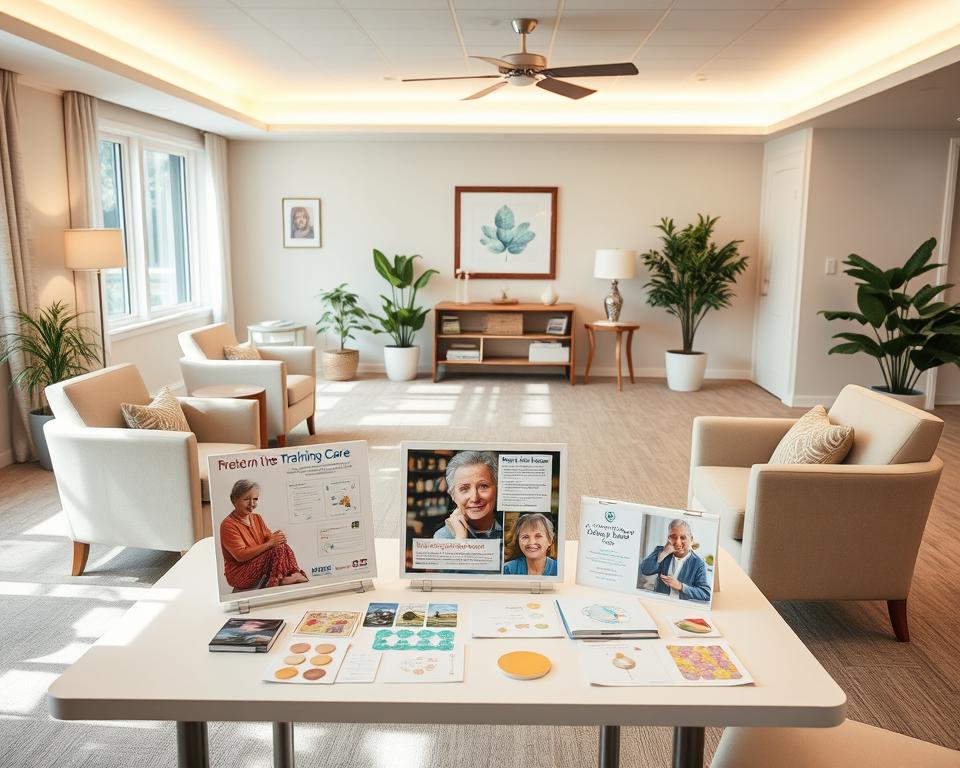As more people age, the need for caring and skilled caregivers in assisted living grows. But what does it take to give our seniors the best care? It’s the deep training that helps these professionals create caring spaces and improve the lives of older adults.
Do you know what skills and knowledge are needed to be a top caregiver? The training is more than just the basics. It covers special areas like caring for those with dementia, managing medicines, and helping with daily tasks. Find out what makes these dedicated workers’ journey so important.
Key Takeaways
- Assisted living caregivers play a vital role in providing compassionate, person-centered care for older adults
- Comprehensive core training covers a wide range of essential skills, from medication assistance to dementia care
- Ongoing education and specialized certifications are crucial for delivering the highest standards of service
- Understanding the core training curriculum empowers caregivers to better serve the evolving needs of the aging population
- Exploring the key competencies and responsibilities of assisted living professionals highlights the complexity and importance of their role
Understanding the Core Components of Assisted Living Core Training
Exceptional care in assisted living needs well-trained caregivers. The first step is a 40-hour course. It covers body functions, safety, communication, and more. This includes emergency response, infection prevention, and care for those with dementia.
Initial Certification Requirements
The training for assisted living has a minimum of 26 hours. It’s based on 10 mandatory modules and one extra on aging issues. Each module has specific goals for the trainees.
This training prepares them for a core exam. It also gives them basic skills for assisted living facilities.
Continuing Education Standards
Assisted living caregivers need ongoing education. They must get 6-8 hours of training each year. This includes professionalism, ethics, and how to prevent infections and respond to emergencies.
This keeps them updated with the latest in memory care and dementia care.
Specialized Dementia Care Training
Exceptional dementia care is key in assisted living. Caregivers get an extra 4 hours of dementia training. They learn about person-centered care, communication, and managing difficult behaviors.
They also learn how to help with bathing and personal care for those with memory care needs. This training helps caregivers support residents with Alzheimer’s and other dementia types. It ensures a good quality of life and proper medication management, fall prevention, and hospice care.

Key Skills and Competencies for Professional Caregivers
To be a skilled caregiver, you need many important abilities. Patience, empathy, and good communication skills are key. They help caregivers build trust and understand their clients’ needs.
Being able to think critically and solve problems is also crucial. This is for handling unexpected situations and making decisions that keep their clients safe and happy.
Keeping detailed records of health and medication is another important skill. Caregivers must also know how to help with daily tasks like bathing and dressing. They need to know about managing medications and preventing falls too.
Training programs stress the importance of compassion and creating a welcoming space. Caregivers must be flexible and able to adapt to different needs. By improving these skills, caregivers can have a big positive impact on their clients and their families.